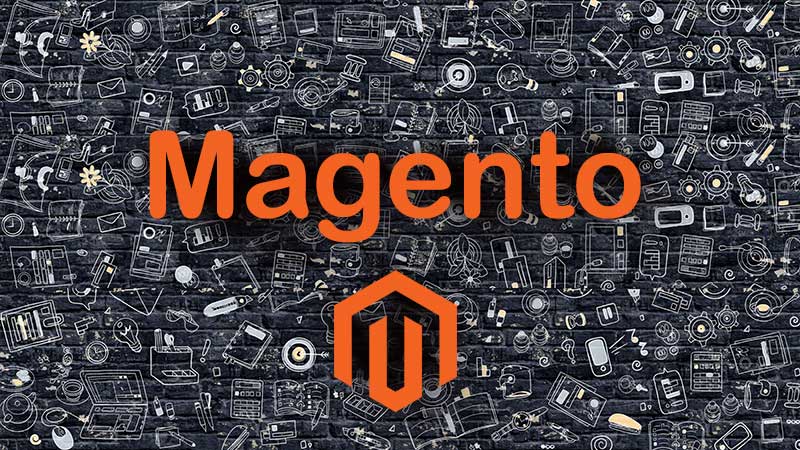Magento E-Commerce Platform

In 2018 Adobe Systems Inc. bought Magento for $1.68 billion to capture a bigger slice of the digital-commerce industry, making it its third-biggest acquisition, making Magento part of the Adobe family.

Magento Open Source is described by Magento itself as ‘the eCommerce Platform for Developers and Small Businesses’.
Perhaps in an effort to compete with Woo Commerce which nibbled on Magento’s market share till it surpassed it, and to keep Shopify at bay which similarly nibbling, Magento seems to be warming up to small business by actually having Express Packages for small business (through Solution Partners) for their Magento Commerce Cloud service. This is a different packaged service from what is currently offered by Forward Multimedia which is the Magento Open Source platform which the the new official name for what we still refer to as the Community Edition.
Even on Magento’s official site there is a Magento vs Shopify guide with the warning “Don’t compromise on your commerce experience by using a one-size fits all solution. Magento is ideal for fast-growing small businesses”. Seems Magento is on full-on mission to shore up business after taking some those heavy hits.
Comparing all websites, Woo Commerce comes out on top, However, among the top 100,000 sites, Magento is ahead of Woo Commerce with 15% to 12% respectively.



Magento Open Source platform for T&T Online Stores
Being an E-Commerce platform at its core, Forward Multimedia recommends it for any Trini business serious about being a player in the local market. With the launch of Magento Version 2 in 2015 with a totally transformed back-end, any online store running the 1.9.X version will have to be upgraded as support is officially ending mid 2020.
As the marketplace develops, consideration will be given to the feasibility of also offering the Magento Commerce Cloud which is a managed, automated hosting platform for the Magento Commerce software
Default set-up of Magento Open Source
To get your online store started on Magento requires that it be installed on your hosting account and connected to your domain. It used to be that web designers had to manually install by downloading the files and setting up the database etc., which was a real headache. These days most hosts have a one-click installation service. Note about this initial installation:
- Magento 2 requires special server environments. I recommend a particular host to my clients, not any host will do as that will lead to headaches.
- Magento comes with a default template called Luma, however a premium template will need to be chosen and installed.
- An SSL Certificate is required. Some hosts have free ones and you may also buy premium ones.
- Manage stock is optional and if enabled is manual, i.e. does not link to your inventory system except by use of a paid extension or custom coding.
- Product catalog can be updated manually from back end one by one or bulk imported via CSV file (via an Excel spreadsheet).
Default features of Magento Open Source
Of course as E-Commerce platforms go the standard shopping cart features you expect are all there. From the pure functional: Choose category > Browse > Add to cart > Checkout/Pay, to essential: Promotion tools like coupons, stock management, Variable/Configurable product catalog, to value-added: search engine optimization (SEO), analytics and reporting. However, there are some other default features you may not be aware of:
- Multiple websites & stores on a single Magento installation
- UPS/DHL/FedEx shipping methods pre-installed
- Sophisticated pricing rules
- Persistent shopping cart to help reduce the number of abandoned shopping carts
- Newsletter Management
- Product bundles
T&T market custom coding requirements
- First Atlantic Commerce (FAC) payment integration
- WiPay Caribbean integration
- Universal Packaging Systems (UPSL) delivery module
- Inventory syncing with major software like Quickbooks, Peachtree, Counterpoint
Product catalog preparation tips


Bulk import of your products into Magento is by CSV (comma-separated values) file. It typically starts out as a regular Excel file, then saved with the .csv extension. Some schools of thought recommend OpenOffice Calc over Excel for saving the CSV with better encoding.
When we get started, I usually provide a sample file to work with. Generally you put each product field in its own column, like Name, Sku, Description, Price, Category, Image, Stock etc.; one product per row.
Product image sourcing tips


You are responsible for sourcing your own product images. Ideally you should be able to obtain from your suppliers or download from their websites.
Please ensure proper images sizes and quality. Generally sizes like 600px X 600px are good for viewing. Larger sizes will have to be made smaller to reduce file size to load faster.
Is a Magento Hosting absolutely necessary?
The Magento server requirements to run the software is a bit unique. It is possible to run it off regular shared hosting but in my experience, I’ve had frequent headaches with such.
Issues usually arise when templates use certain extensions that have requirements not fully supported by the current server environment.My preferred host is not expensive, cost is around $14.95 USD/mth and quite affordable.
Download features list
Here is the full list of Magento Open Source features. These capabilities are probably more than you’ll be able actually make full use of. Open the PDF for the official feature set.
Magento Technical Support
Forward Multimedia provides technical support for Magento stores via third party Certified Magento Developers I’ve partnered with. Clients draw from a central pool of prepaid hours so that technical issues are troubleshooted and resolved in a timely manner.



Magento Maintenance Plans
Forward Multimedia is available for ongoing updates to your Magento store like adding pages, products, product categories or to make changes to website settings like shipping, payment options etc.




